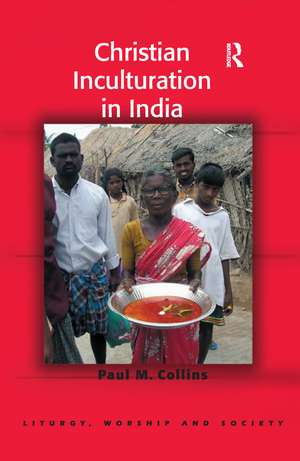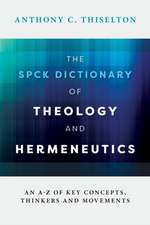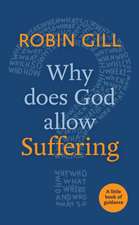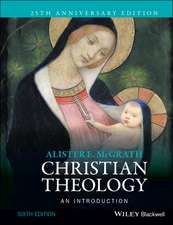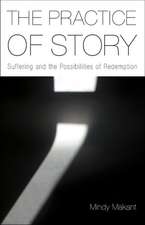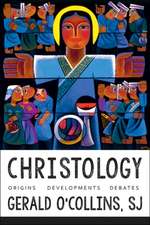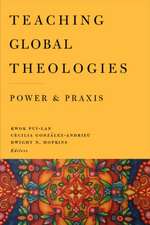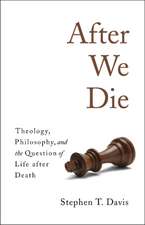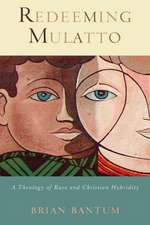Christian Inculturation in India: Liturgy, Worship and Society Series
Autor Paul M. Collinsen Limba Engleză Paperback – 11 noi 2016
| Toate formatele și edițiile | Preț | Express |
|---|---|---|
| Paperback (1) | 469.34 lei 6-8 săpt. | |
| Taylor & Francis – 11 noi 2016 | 469.34 lei 6-8 săpt. | |
| Hardback (1) | 1002.63 lei 6-8 săpt. | |
| Taylor & Francis – 28 aug 2007 | 1002.63 lei 6-8 săpt. |
Din seria Liturgy, Worship and Society Series
-
 Preț: 371.24 lei
Preț: 371.24 lei -
 Preț: 349.41 lei
Preț: 349.41 lei -
 Preț: 369.73 lei
Preț: 369.73 lei - 19%
 Preț: 256.48 lei
Preț: 256.48 lei -
 Preț: 457.14 lei
Preț: 457.14 lei -
 Preț: 382.36 lei
Preț: 382.36 lei -
 Preț: 389.66 lei
Preț: 389.66 lei -
 Preț: 380.84 lei
Preț: 380.84 lei -
 Preț: 377.45 lei
Preț: 377.45 lei -
 Preț: 416.44 lei
Preț: 416.44 lei -
 Preț: 489.26 lei
Preț: 489.26 lei -
 Preț: 416.22 lei
Preț: 416.22 lei -
 Preț: 469.34 lei
Preț: 469.34 lei -
 Preț: 384.48 lei
Preț: 384.48 lei -
 Preț: 469.34 lei
Preț: 469.34 lei -
 Preț: 395.04 lei
Preț: 395.04 lei -
 Preț: 324.58 lei
Preț: 324.58 lei -
 Preț: 392.28 lei
Preț: 392.28 lei -
 Preț: 381.72 lei
Preț: 381.72 lei -
 Preț: 380.63 lei
Preț: 380.63 lei
Preț: 469.34 lei
Nou
Puncte Express: 704
Preț estimativ în valută:
89.82€ • 93.43$ • 74.15£
89.82€ • 93.43$ • 74.15£
Carte tipărită la comandă
Livrare economică 12-26 aprilie
Preluare comenzi: 021 569.72.76
Specificații
ISBN-13: 9781138255296
ISBN-10: 1138255297
Pagini: 252
Dimensiuni: 156 x 234 x 13 mm
Greutate: 0.45 kg
Ediția:1
Editura: Taylor & Francis
Colecția Routledge
Seria Liturgy, Worship and Society Series
Locul publicării:Oxford, United Kingdom
ISBN-10: 1138255297
Pagini: 252
Dimensiuni: 156 x 234 x 13 mm
Greutate: 0.45 kg
Ediția:1
Editura: Taylor & Francis
Colecția Routledge
Seria Liturgy, Worship and Society Series
Locul publicării:Oxford, United Kingdom
Cuprins
Contents: Preface; Foreword; Introduction; Cultures commerce and colonies :the export factor; Redefining identities: landscapes and imperatives: 1963; Whose values; which cultures? The effects of local theologies; Art, architecture and topography: temples and churches in South India; Rites and rituals: 'lex orandi, lex credendi?'; Imperatives for a new agenda; Afterword; Liturgical texts; Bibliography; Indexes.
Notă biografică
The Revd Dr Paul M. Collins is Reader in Theology at the University of Chichester, UK. A priest of the Church of England, he has worked in theological education for twenty years, first at Chichester Theological College, then at the Queen's Foundation, Birmingham and presently at the University of Chichester. His research interests include the doctrines of the Trinity, Theosis and the Church, and inculturation, especially in South India. He is currently a member of the Faith and Order Advisory Group of the Church of England.
Recenzii
’...an exceedingly good introduction... Collins provides introductions and signposts in the field of inculturation which will offer those who are interested a vast itinerary of places to explore.’ Vidyajyoti Journal of Theological Reflection ’... a positive contribution to the literature on Christian faith and culture in India...’ Worship ’... the book is recommended for students of contextualization in South India.’ Missiology ’In this study the author has made a great contribution to the understanding of liturgical traditions in South India, in relation to the particular view of what Indian-ness may be said to be.’ Questions Liturgiques/Studies in Liturgy ’Collins' work provides a model to critically examine Christian inculturation attempts in every cultural context.’ Theological Book Review '... this book contains a mine of examples. ... This book is highly recommended to missiologists, church historians and theologians, as well as liturgists and teachers of worship.' Ecclesiology
Descriere
Drawing together international and Indian sources, and new research on the ground in South India, this book presents a unique examination of the inculturation of Christian Worship in India. Paul Collins examines the imperatives underlying the processes of inculturation - the dynamic relationship between the Christian message and cultures, and then explores the outcomes of those processes in terms of architecture, liturgy and ritual and the critique offered of these outcomes, especially by Dalit theologians.
